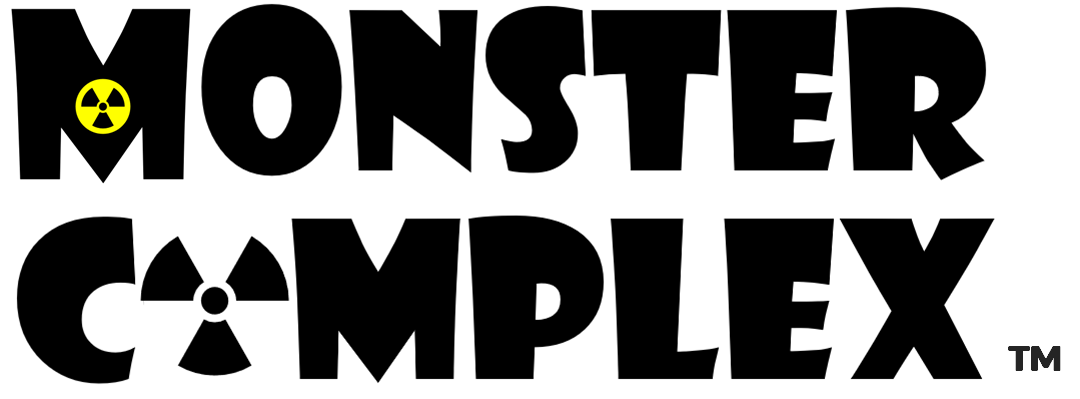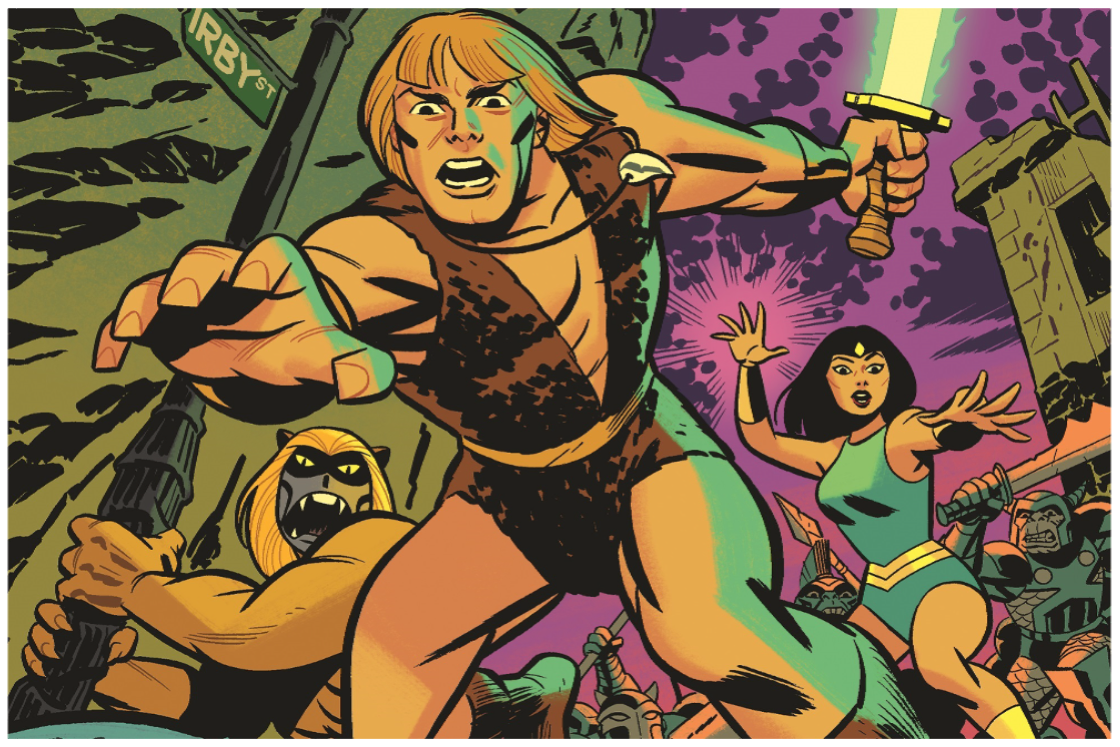Ben Avery Q&A: GHOSTS OF THE FUTURE
As an Amazon associate I earn from qualifying purchases. (At no additional charge to you.)
A strange anomaly lured them off course with the promise of profit and discovery…
The crew of the Tabitha thought they were just investigating a unique anomaly. But now they have to deal with a planetoid with deadly secrets, a cosmic maelstrom they cannot escape, and a warship intent on destroying them.
Author Ben Avery talks to Monster Complex about his new novel, Ghosts of the Future: In our interview, Avery tells Monster Complex about the inspiration(s) for Ghosts of the Future, how the novel compares to other space-opera type stories, and what he loves best about these types of stories…
About the book
A strange anomaly lured them off course with the promise of profit and discovery. An impossible planetoid challenged them with mysteries—from a derelict starship with a tragic history to alien structures with a baffling origin! A deadly enemy plunged them into a confrontation on the edge of a dangerous cosmic maelstrom.
The crew of the freighter starship Tabitha could not have known that what they thought would be a simple investigation of an interesting and unusual anomaly in space would turn into a collision of the past, the present, and the future…and a conflict with one inevitable outcome.
One of them WILL die.
About the author
Although the old-school feeling sci-fi novel GHOSTS OF THE FUTURE is Ben Avery’s first novel, he has long been a storyteller in several kinds of media—including fiction, comic books, puppets, animation, and more. His first professional writing was with George R.R. Martin, adapting Martin’s Hedge Knight novellas for the The Hedge Knight (A Game of Thrones) comic books. Since then, Avery has worked for Image, Marvel, and Zondervan.
With a passion for all ages storytelling, he co-created TIMEFLYZ and ARMORQUEST. He has also adapted Bible stories for comic books. He has also been editing some anthologies with other sci-fi writers.
Ben Avery Q&A: GHOSTS OF THE FUTURE
Q: What inspired your new book?
GHOSTS OF THE FUTURE came from a couple of different places.
Externally, it came from a drawing that my friend and collaborator Tim Baron drew. He draws a lot of macabre stuff, and he drew a picture of a skeleton in a space suit. When he drew that, I started wondering what had happened to that guy. I wanted to know that guy’s story.
I came up with an idea that involved time travel and some other things but never really took it anywhere—not for a little while anyway.
In the meantime, I had been playing with some ideas about a crew of people that I sometimes refer to as “nice Firefly.” You know: what if the people from Firefly, the beloved TV show, were actually nice?
Finally, a few years ago, NaNoWriMo (November Novel Writing Month) rolled around. I’d done things like it before—24 Hour Comic Day, for example—and I’d given NaNoWriMo a shot once or twice before but didn’t succeed. Creatively, I was sort of at a low point.
My freelance gigs had been drying up. Suddenly, I was in a creative identity crisis: was I a creator if I wasn’t creating? So I decided to use the novel writing event to kickstart something. Anything. Just to create.
The “anything” it kickstarted turned out to be taking my idea for the working class crew of a starship that uses something called the Slipstream to travel the galaxy and having them find the skeleton in the spacesuit.
What was nice about it was how freeing it was. It was the chance to just write something for me. To just have fun. My family’s well-being did not rest on this. The story went in some very different directions than I thought it would when I was first coming up with the idea for what “that guy’s” story was.
But the broad strokes were there: time travel (of a sort); questions of free will and fate; a mystery about how he came to be where he was.
Q: How does this compare to other space opera type stories?
I think what makes this different is probably tone. It was a conscious choice to make my main character, Edgar, an unlikely hero. He’s not a Captain Kirk or a Buck Rogers, although he does interact with some people who could be categorized as the Space Hero.
He’s also not a Luke Skywalker, destined to be the One. He’s just a young man trying to figure out the world… or galaxy, I guess… and make his way through life. And in this story, when he gets mixed up in a situation where he could possibly rise up to be the hero he imagines he could be, he screws things up and there are real consequences for him.
And there’s another big element here, which is the idea of family and home. The Tabitha, the ship they travel in, is definitely a home where a makeshift family has come together. The captain of the ship is referred to as Ma and her husband is Pop. There’s a backstory there on how that started that I don’t get into in GHOSTS, but the end result here and now is that they treat their crew like family.
And that family, like many of our families, includes people like the cousin you hope doesn’t come to the holiday event but you put up with them when they do. Because they’re family. Edgar is just in the beginning stages of feeling accepted into the fold when the book opens, but when the book concludes he understands his place much better.
Q: What do you love most about space operas? What made you a fan?
Obviously, as someone born in the 70’s, Star Wars looms large. And Star Trek. And as I got older, it was Isaac Asimov and Edgar Rice Burroughs and Robert A. Heinlein and Ray Bradbury.
All of these things engaged my imagination—and still do! They portray a sense of discovery and wonder and exploration and humanity and emotion!
But this is why I love the GOOD Star Trek so much—great Star Trek creates a sense of wonder even in the face of huge obstacles that threaten to destroy. Recently, watching Ashoka I found myself getting frustrated until they finally reached a point in the second half where they visited a new location and this new location was filled with mystery and wonder.
I just started a new podcast about an old TV show from Canada. The podcast—titled Up From the Ashes—covers the 50th anniversary of THE STARLOST, with each episode of the podcast being released 50 years to the day after it was originally broadcast. Now, THE STARLOST is not a great show (some people call it the worst sci-fi show of all time, although—SPOILER —it’s not…) but it explores the BIG IDEAS that only sci-fi can in ways that only sci-fi can.
I’m a fan of THE STARLOST not because it’s the greatest show of all time, but because it engages those parts of my imagination that ask “what if?” What if you were frozen because you were going to die in two hours and you were woken up 400 years later… and there’s not a cure for your disease? What if you were raised all your life thinking your village and farms were all there was to the universe, only to find out you’re just one small part of a spaceship that’s heading to another planet? Those kinds of things excite me.
So as a child, superhero adventures and space exploration always connected with me (along with time travel) because when they were done well, they transported you to another world and caused you to think about the world you live in now.
Q: What are your pet peeves about the genre that you’ve seen others do? (And how does it impact your writing?)
Probably my biggest pet peeve is when you don’t get a complete story in something that’s being sold as a unit. I blame Star Trek: The Next Generation with that crazy awesome cliffhanger when Riker says “Fire!” and we had to wait all summer to see if Picard would somehow survive. We loved it! But now, it feels like everything rests on setting up the cliffhanger as if that’s a way to get viewers to demand that it continue.
I want a satisfying ending. Unless I have good reason not to, I tend to stay away from books and movies and shows that don’t have conclusions. Because I hate getting invested in characters only to have their stories become unresolved.
So that has impacted how I plan to continue in the Slipstream Universe. I want my books to be standalone. If there’s never another book, you’re getting a complete story. That’s just me, and like I said I have reasons for breaking my rule. Quality is one. Relationship with the author is another one, if reading their book is going to support them.
I call it the “If You Give a Mouse a Cookie” principle (if you’re familiar with the children’s book). Generally speaking, if you give a Ben a great book and it’s mainly setting up a sequel, he’s going to want the sequel. And if there’s no sequel…
That said, two of the independent press books that I recommend the most are continuing stories that have ended on cliffhangers so far. So is it a pet peeve? Yes. But am I consistent? I guess not. (Side note: the books are the Flight of the Angels series by Allan and Aaron Reini and the Jewel of the Stars series by Adam David Collings.)
Q: What are the best ways for readers to keep track of your writing and other author news?
Probably the best way is to follow me on Facebook because I post there about upcoming podcast news, book news, and appearances.
You can also join my mailing list, where I send out updates less than once a month! You’re not going to get spammed by me there! You can sign up here.
More from Monster Complex
How Charles Addams helped Ray Bradbury’s monster family in ‘From the Dust Returned’
[Flashback] Alien (1979)—Ripley Was Supposed To Be This Instead
Peter David: Complete Star Trek: New Frontier Series: “The best of both worlds.”
Remembering Space: 1999—Everything That Might Have Been [Spotlight]
Star Trek: Doc ‘Woman in Motion’ Shows Nichelle Nichols’ Contributions to Space Exploration
Star Trek star Michael Dorn is writing a comic book starring STEEL

















Translator Jeffrey Angles talks making the original 1960s Mothra fiction available in English! “Tōhō’s monster movies are great fun, but they are also fantastically revealing windows….”